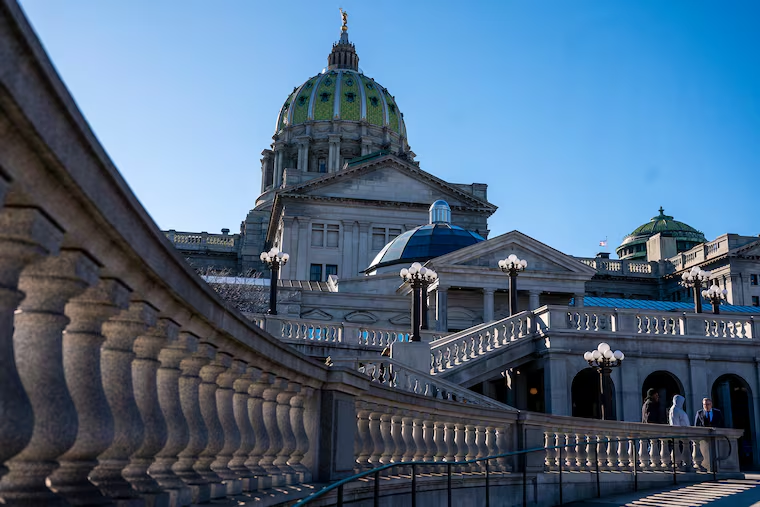Legislature blows its budget deadline — again — leaving vulnerable Pennsylvanians with the consequences | Editorial
Funding delays impact school districts, state universities, community colleges, and many county services, including child welfare programs.

Pennsylvania General Assembly members get paid $100,000 a year and essentially have one job to do: Pass a balanced budget. But every year, it’s a struggle.
This year is no different.
Once again, lawmakers missed the June 30 statutory budget deadline and left town for the long holiday weekend. Last year, lawmakers didn’t finalize the budget until December — that’s nearly six months after it was required to be enacted.
So far, the two sides appear to be close to striking a deal. While the negotiations seem less acrimonious than previous budget battles, there is no excuse for missing the deadline.
One problem could be that the legislature only works 50 days a year. The other problem is that there are no consequences for failing to pass the budget on time.
At least not for the lawmakers, who get paid whether they do their job or not. But for everyone else, there are consequences, as the delay impacts the operations at many state agencies left in limbo while trying to determine how much funding they will receive in the coming fiscal year.
» READ MORE: Join the Pa. legislature and start making money today! | Editorial
School districts don’t know how many teachers they can hire when school starts in two months. Plans for other programs, upgrades, and investments are also left up in the air. The funding delays also impact state universities, community colleges, and many county services, including child welfare programs.
It is an irresponsible way to run a nearly $50 billion-a-year enterprise, especially with the future of so many children and other vulnerable residents on the line.
One way to get lawmakers to do their job would be to withhold their paychecks until the budget is passed. That would undoubtedly help focus their minds and create a sense of urgency to meet the deadline.
The problem, of course, is that legislators would have to approve such a measure. But lawmakers are unable to police themselves. They can’t even adopt a basic gift ban that would limit the influence peddling that drives so much policy in Harrisburg.
It is a mess. Yet, it does not have to be this way.
While Pennsylvania’s bloated General Assembly members make six-figure salaries and often have side jobs, lawmakers in New Hampshire receive an annual stipend of $100 in what amounts to a true public service.
While Pennsylvania lawmakers engage in annual budget fights over many of the same issues, Texas lawmakers, who are paid only $7,200, operate on a more sensible two-year budget cycle.
Simple reforms such as a gift ban, prohibiting outside work, shrinking the size of the legislature, and a two-year budget cycle would make for less corrupt and more efficient operations.
As is often the case, this year’s fight involves spending and taxes.
» READ MORE: Pennsylvania’s legislature is big — and that’s beautiful | Kyle Sammin
Gov. Josh Shapiro and Democrats (who hold a slight majority in the House) support a $3 billion spending increase that would include a historic funding boost for public schools.
Meanwhile, Republicans (who control the Senate) proposed $3 billion in tax cuts. That leaves the two sides essentially $6 billion apart. But the state has a $15 billion surplus.
The budget negotiations are playing out as Pennsylvania’s funding for public schools was found to be unconstitutional last year. So each day that passes, the lawmakers are in violation of the law.
Other pressing issues include funding for public transit, health care, housing, and intellectual disabilities. Shapiro proposed offsetting the spending increases with two new revenue sources: recreational marijuana and skill games. (When in doubt, Harrisburg always turns to more gambling, a lazy and irresponsible way to fund government services.)
Adequately funding public education should be the top priority, if for no other reason than to comply with the state constitution. Going forward, lawmakers should settle on the school funding formula, backed by the House, that stretches over several years so the state can meet its funding mandate and educators can implement spending plans in a more orderly fashion.
With no one to blame but lawmakers themselves, the annual budget delays are no way to run a state.